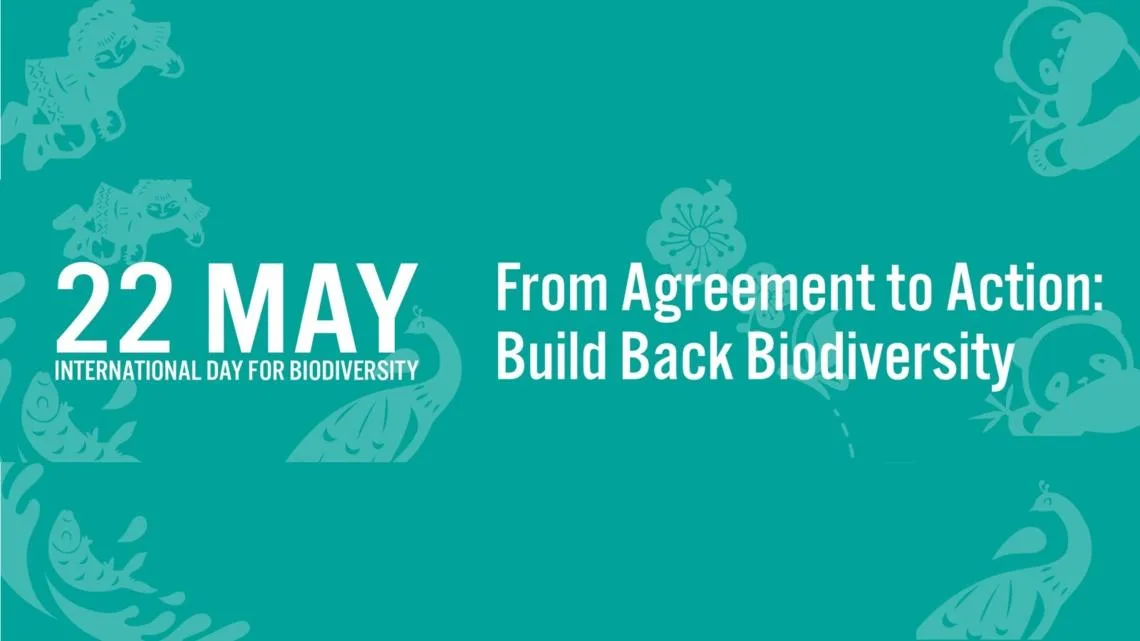Authors
Maria Campos, Senior Associate, Nature Action, Josip Pervan, Senior Manager, Policy Advocacy & Member Mobilization
22 May is recognized as the International Day for Biological Diversity (IDB) by the United Nations to raise awareness about biodiversity concerns. This year’s global celebrations are particularly significant and bring a renewed sense of hope as they coincide with the adoption of the Kunming-Montreal Global Biodiversity Framework (GBF) at COP 15 in Montreal. To mark this historic achievement, this year’s theme is: “From Agreement to Action: Build Back Biodiversity”
The GBF marked the equivalent “Paris moment” for nature. It raised nature to the same political level as climate, rallying stakeholders at the global level to deliver on a collective mission. The landmark UN Biodiversity Agreement sets the global plan to halt and reverse biodiversity loss by 2030, including 4 goals and 23 action targets – many of which are relevant to the business community.
All stakeholders, including business, play a crucial role in this “whole-of-government and whole-of-society approach” to ensure the successful implementation of the GBF, if we want to avoid the catastrophic consequences of continuing biodiversity loss to our communities and our economies.
With the approval of the GBF, the business community has now extra certainty on what will be coming for them in national regulations to deliver on the agenda to halt and reverse nature loss. In addition, at a global level, progress can be tracked across a consistent set of 23 targets and related actions.
What can business do now to address key GBF targets?
There is no doubt that nature is becoming an ever more critical agenda for business. Investors are increasingly asking companies to understand their impacts on nature, and by 2030 governments will also require business to disclose their impacts on nature (as ratified in target 15). To deliver on these expectations, business need to start now, and step-up ambition and action to address nature.
Informed by the existing guidance and tools, business have started taking action to meet upcoming requirements, and identifying priority actions to address their most relevant impacts on nature. With these actions, we are starting the journey towards implementation and mapping contributions towards the GBF.
On the road to COP 16 taking place in 2024, WBCSD and its members are actively working on scaling up implementation, creating and piloting guidance and tools to help business deliver on these targets and contribute to halting and reversing nature loss by 2030, as well as prepare for key frameworks including from Science Based Targets for Nature (SBTN) and Taskforce on Nature-related Financial Disclosures (TNFD).
First step is to assess and disclose on their relationship with nature to increase understanding and identify key impacts and dependencies from business activities on nature, and to monitor and report on progress – in line with Target 15. This target is a key lever for accelerating action under other targets, hence being the subject of a successful “Make it Mandatory” campaign coordinated by Business for Nature and the Capitals Coalition, and supported by WBCSD and many of its members. In total, more than 400 business and finance institutions from 52 countries supported the campaign.
In addition, business need to identify priority commitments and actions, that address key impacts and dependencies, and contribute to GBF mission and targets, specifically to:
- Halt negative impacts on nature through efforts to reduce pollution – in line with Target 7.
- Avoid further conversion through sustainable use and better resource management (this may include “biodiversity-friendly” practices such as regenerative agriculture) – in line with Target 10.
- Reverse nature loss by actively contributing to restoring ecosystems – in line with Target 3.
- Encourage sustainable consumption and halve food waste – in line with target 16.
Central to this, the Roadmaps to Nature Positive are mapping the key impacts & dependencies and identifying priority actions across three high-impact global value chains, Food & Agriculture, Forest, Built Environment and Energy value-chain systems. This is aligned with broader effort to map sector transitions to Nature Positive in collaboration with Business for Nature and the World Economic Forum. The One Planet Business for Biodiversity (OP2B) coalition is also working on scaling up action and implementation towards the GBF, and published during COP 15 a framework for Restoration Actions to help answer the need for harmonization in the ecosystem restoration field by aligning and amplifying action for maximized impact at scale – following the launch of the Regenerative Agriculture Framework that complements the guidance for business in the agricultural/land-use value chain on restoration and regeneration actions.
WBCSD aims to move forward the emerging accountability system for nature in a similar way to its approach to carbon accountability and focus on interventions supporting business leaders to sharpen accountability, raise ambition, and deliver action at speed and scale.

